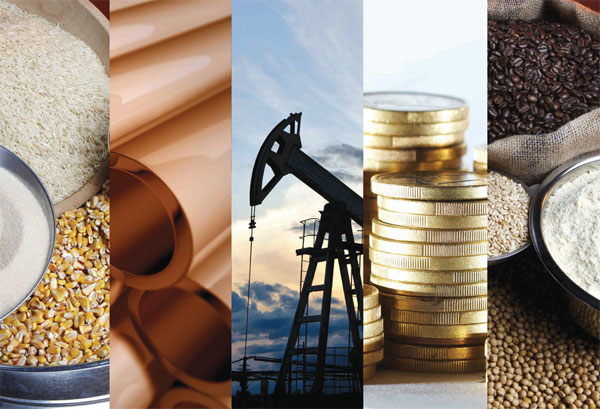Commodities zoom from no-go to all-clear zone
Updated: 2016-04-25 07:47
By Peter Liang(HK Edition)
|
|||||||||
|
One bullish factor boosting commodities is the perception that the downward pressure on the Chinese mainland economy is easing, based on official data. |
Commodities have been a no-go zone for global investors for the past few years. They were right. The prices of a wide range of metals and other commodities were in free fall as demand from developed economies and the Chinese mainland contracted at an alarming rate.
This may be changing. Although the global economic outlook remains murky at best, commodity prices have been rising in recent months, largely because industries have seen the need to replenish their depleted stocks of raw materials, including iron, copper, aluminum and zinc.
Iron ore was trading at around $64 a ton - the highest since June 2015 and up from about $38 in December. The price of copper has gone up nearly 7 percent so far this year, while that of aluminum is up by more than 5 percent.
Investment analysts cannot agree if the trend will continue for long. But the resource sectors in the Hong Kong and mainland stock markets were making a strong comeback last week, outperforming the main indicators.
Interest rates also play an important role in influencing commodity prices. The US Federal Reserve has sent out signals that have been widely interpreted as indicating that rates will not be raised in the second quarter of this year. The result is a weakening US dollar against most other major world currencies. This has the effect of pushing up US dollar prices of most commodities.
Another bullish factor for commodities is the perception, based on the latest set of official figures, that the downward pressure on the Chinese mainland economy is easing. More important is that lower-than-expected inflation gives room for the government to step up its monetary easing policy to help stabilize the economy.
To most investors, though, picking stocks in the unfamiliar resource sector may present some risks. One alternative is to invest in the commodity-exporting emerging markets, including Mexico, Brazil and South Africa, either directly or through mutual funds. The MSCI index that tracks emerging markets has risen 6.5 percent since the beginning of this year.
Furthermore, emerging market stocks, valued at an average multiple of 12 times, are cheaper than those in Hong Kong or on the mainland. If you are game, this is the time.
(HK Edition 04/25/2016 page10)
